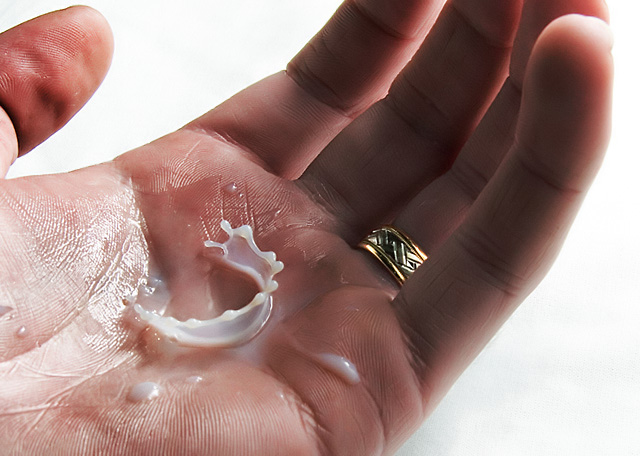Nothing to Cry Over : April 03, 2008

Image Data
File Name: 20D_19038
Model: Canon EOS 20D
Lens: Canon EF-S 17-85mm F4-F5.6 IS USM
Date: 04.02.08 10:36pm
Focal Length: 35mm (56mm)
Shutter: 1/250 s
F-Stop: F16
ISO: 400
Program: Aperture priority
Metering Mode: Evaluative
Flash: On
Flash Details: Manual
Focus Mode: Manual focus
File Name: 20D_19038
Model: Canon EOS 20D
Lens: Canon EF-S 17-85mm F4-F5.6 IS USM
Date: 04.02.08 10:36pm
Focal Length: 35mm (56mm)
Shutter: 1/250 s
F-Stop: F16
ISO: 400
Program: Aperture priority
Metering Mode: Evaluative
Flash: On
Flash Details: Manual
Focus Mode: Manual focus
Nothing to Cry Over
Thanks for the Like/Fave!
Comments: 1 Views: 590 You Liked/Faved This (91) Studio
In many cultures of the world, especially the Western world, humans continue to consume milk beyond infancy, using the milk of other animals (in particular, cows) as a food product. For millennia, cow milk has been processed into dairy products such as cream, butter, yogurt, ice cream, and especially the more durable and easily transportable product, cheese. Industrial science has brought us casein, whey protein, lactose, condensed milk, powdered milk, and many other food-additive and industrial products.
Humans are an exception in the natural world for consuming milk past infancy. Most humans lose the ability to fully digest milk after childhood (that is, they become lactose intolerant). The sugar lactose is found only in milk, forsythia flowers, and a few tropical shrubs. The enzyme needed to digest lactose, lactase, reaches its highest levels in the small intestines after birth and then begins a slow decline unless milk is consumed regularly.
Humans are an exception in the natural world for consuming milk past infancy. Most humans lose the ability to fully digest milk after childhood (that is, they become lactose intolerant). The sugar lactose is found only in milk, forsythia flowers, and a few tropical shrubs. The enzyme needed to digest lactose, lactase, reaches its highest levels in the small intestines after birth and then begins a slow decline unless milk is consumed regularly.
Comments (0)
Colin
04.03.08 6:42pm
I've read a theory that lactose intolerance is an evolutionary means to wean off milk (and grow up, blah blah). But we all know evolution and "theories" are bogus (science: pfft) so forget that noise!
I've read a theory that lactose intolerance is an evolutionary means to wean off milk (and grow up, blah blah). But we all know evolution and "theories" are bogus (science: pfft) so forget that noise!















 Subscribe
Subscribe


